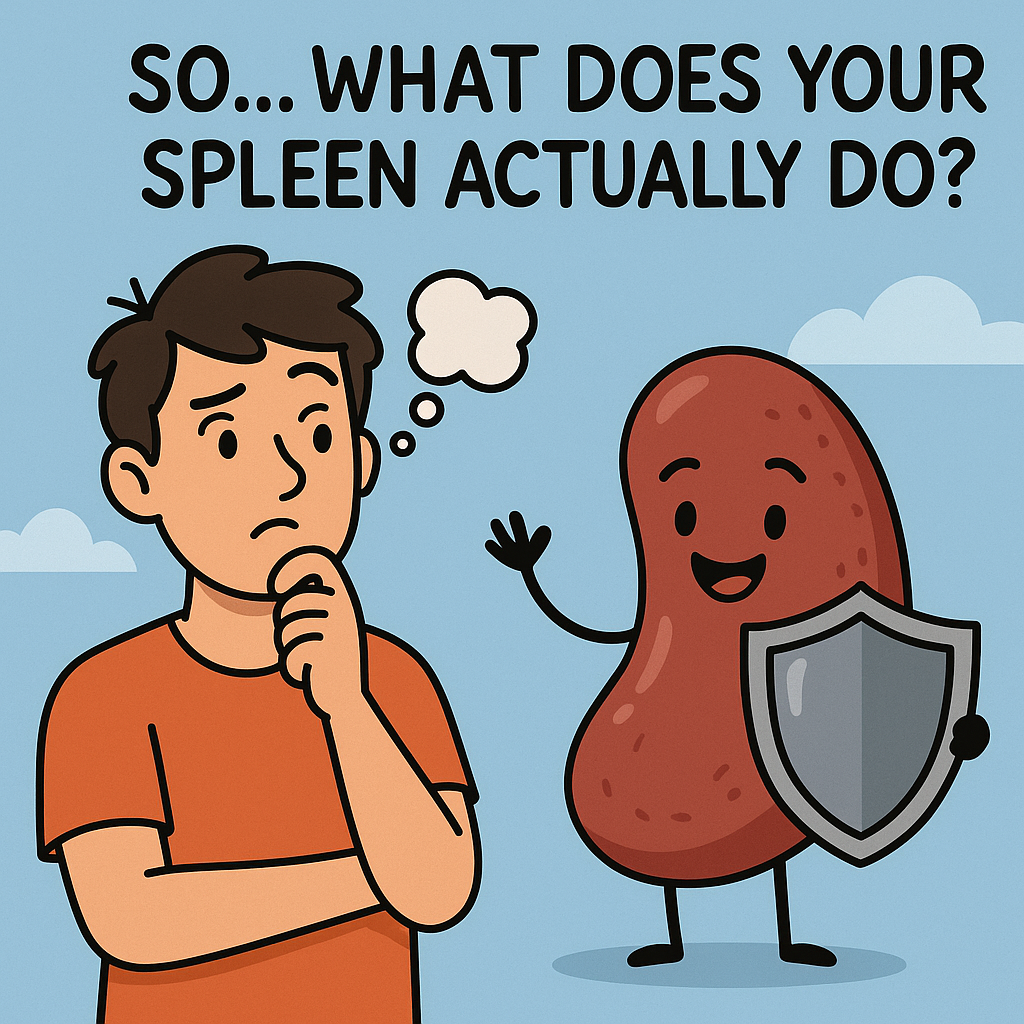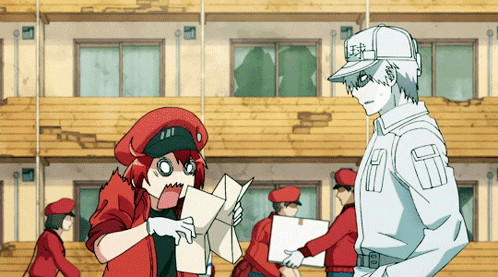🩸 So... What Does Your Spleen Actually Do? Let’s Talk About It!

Health & Sciences | The Varrock Street Journal
Welcome back Varrock Street Journal readers!
If someone asked you, “What does your spleen do?” what would you say?
Have you ever really thought about it? Go ahead—make a guess right now!
Don’t worry, you’re not alone if you're unsure. The spleen tends to fly under the radar in conversations about organs, despite playing some pretty big roles in immunity and blood health.
Today, we’re diving into the mystery of the spleen: what it does, what happens when it gets sick, and what life looks like if you have it removed.
🧬 What Is the Spleen, and What Does It Do?
Your spleen is a fist-sized organ tucked under your ribcage on the upper left side of your abdomen. It’s part of both the lymphatic system and the immune system, and it wears a lot of hats.
Here’s what it’s responsible for:
🩸 Blood Filter
- Removes old or damaged red blood cells from circulation
- Breaks down hemoglobin into iron for reuse
🛡️ Immune Defense
- Detects pathogens and produces white blood cells (lymphocytes)
- Helps create antibodies and activate immune responses
- Stores monocytes to fight infection
🧃 Blood Reservoir
- Holds a reserve of red blood cells and platelets
- Can release them during emergencies like trauma or bleeding
It’s a multi-tasking powerhouse—quiet, but essential!

⚠️ Common Spleen Pathologies
🔹 Splenomegaly (Enlarged Spleen)
- Often a sign of underlying issues like infections, liver disease, or cancers
- Can cause discomfort, a feeling of fullness, or anemia
🔹 Hypersplenism
- When the spleen becomes overactive, it starts destroying too many blood cells
- Can lead to anemia, thrombocytopenia, and low white blood cell counts
🔹 Ruptured Spleen
- Usually caused by trauma, like a car accident or sports injury
- A medical emergency that can cause internal bleeding
🔹 Sickle Cell Disease
- In this condition, abnormal red blood cells can clog the spleen
- Over time, the spleen may shrink or stop functioning—a process called autosplenectomy
🔹 Cancers of the Spleen
- Rare, but include lymphomas or metastases from other cancers
Here is an interesting video talking about one of problems the spleen can encounter (this case is specifically with sickle cell disease), and the management for it in the hospital.
🏥 What Happens If You Need Your Spleen Removed?
Surgical removal of the spleen is called a splenectomy. It may be done because of:
- Trauma or rupture
- Certain blood disorders (like hereditary spherocytosis or immune thrombocytopenia)
- Cancer
- Hypersplenism
Here’s what to know:
- You can live without your spleen—but your immune system will be more vulnerable.
- After removal, you’ll be more susceptible to certain bacterial infections (especially Streptococcus pneumoniae, Haemophilus influenzae, and Neisseria meningitidis).
- People without a spleen often need vaccines and antibiotic precautions to reduce infection risk.
- You may also have higher platelet counts and a slightly increased risk of blood clots.

🧠 Why This Matters
We often think of the “major organs” like the heart, brain, and lungs—but the spleen is a vital player in the immune and circulatory systems. When it’s not working properly—or when it’s removed—other systems must adapt.
Understanding the spleen helps us better recognize hidden infections, blood disorders, and immune imbalances—especially in patients who’ve had theirs removed.
🌟 Spotlight on the Future
- Research is ongoing into spleen-sparing surgeries for trauma
- Bioengineers are exploring ways to create artificial spleen-like filtration systems
- Vaccination protocols are improving for asplenic (no spleen) individuals
- AI tools are helping radiologists detect subtle spleen enlargement on imaging scans
😲 Did You Know?
- The spleen can double in size during certain infections like mononucleosis!
- Ancient Greek physicians thought the spleen was responsible for melancholy or sadness.
- Some animals (like seals and whales) store extra oxygenated blood in their spleens for deep diving!
🧠 Reflection Questions
- Before today, what did you think the spleen did? Has your view changed?
- Should more people with recurrent infections be screened for spleen issues?
- How can we better support those who’ve had their spleens removed?
👋 Final Thoughts
So, next time someone asks, “What does your spleen do?” you’ve got the answer—and more. This quiet little organ may not get the glory, but it keeps your body balanced, protected, and resilient. Even when it’s gone, its importance lingers.
📚 References
- Mayo Clinic. (2024). Spleen Function and Disorders. https://www.mayoclinic.org
- Cleveland Clinic. (2024). Splenectomy and Recovery. https://my.clevelandclinic.org
- American Society of Hematology. (2024). Understanding Spleen-Related Blood Disorders. https://www.hematology.org
- NIH. (2023). Spleen Anatomy and Immune Function. https://www.nih.gov
📲 Stay sharp with spleen science every week:
- Instagram: @thevarrockstreetjournal
- TikTok: @varrock.street.jo
